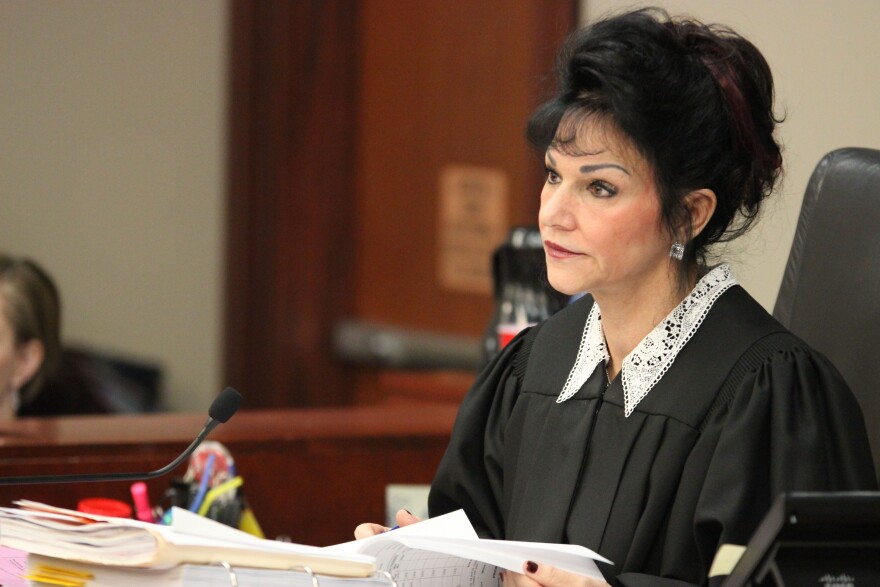Imprisoned former Michigan State University sports doctor Larry Nassar is appealing his sentence for sexually assaulting seven former female patients, and wants the judge who sentenced him disqualified from the case.
Nassar pleaded guilty to the charges last year. Ingham County Judge Rosemarie Aquilina gave Nassar a 40-to-175 year sentence in January following a seven-day hearing that included victim impact statements from more than 100 women and girls.
According to documents filed by Nassar’s attorneys with the Michigan Court of Appeals, that process was “just a ritual” as opposed to a true sentencing hearing.
“Judge Aquilina made numerous statements throughout the proceedings indicating that she had already decided to impose the maximum allowed by the sentence agreement even before the sentencing hearing began,” Nassar’s court-appointed lawyers write in a motion to disqualify Aquilina.

“Instead of a proceeding to assist the judge in reaching a fair and just sentencing decision, the judge used the nationally-televised proceeding as an opportunity to advance her own agenda…and, seemingly, as a type of group therapy for the victims.”
Nassar contends that Aquilina allowed the hearing to “devolve into a free-for-all” in which both Nassar and his attorneys were openly scorned and threatened with harm. His lawyers go on to say that “it should have been no surprise” when a victim’s father physically attacked Nassar during another courtroom proceeding, and claim that Nassar was also “physically attacked in federal prison within a few hours of being released into the general population” in May.
“Unfortunately, Judge Aquilina’s comments and conducting of the sentencing proceeding appeared to encourage this type of behavior,” the motion for disqualification states.
“The judge herself openly lamented that she could not impose cruel and unusual punishment upon the defendant, indicated her expectation that he would be harmed in prison, without condemning it, and finally proclaimed, with apparent relish, that she was signing his ‘death warrant.’”
Mick Grewal, an attorney for more than 100 Nassar victims, contests this depiction of Nassar's sentencing proceedings.
“When people say this was a free-for-all, I disagree," Grewal said. “When you have over 150 women speaking, all who were sexually assaulted, all under the guise of medical treatment, or the majority of them…emotions run high.”
Grewal also notes that Nassar's plea agreement allowed for victim impact statements.
"In that plea agreement, it was authorized that any victims or any survivors were allowed to come forward to speak," Grewal said. "So it’s kind of ironic now that he’s claiming there was a free-for-all. That was the bargain that he struck.”
Aquilina’s alleged breaches of judicial conduct form the core of Nassar’s appeal for re-sentencing. His lawyers say that Nassar was denied due process because of Aquilina’s stated bias in favor of victims, and that he’s entitled to resentencing because the court “departed from the principles of individualized sentencing” by repeatedly stating a preference for imposing the maximum sentence during the hearing.
They also claim that Aquilina had “no authority under Michigan law” for making Nassar’s sentence on state charges consecutive to his 60-year federal sentence for possession of child pornography. As a result, Nassar is “entitled to resentencing on that basis, and resentencing must be before a different judge.”
After drawing the national media spotlight and giving a handful of interviews in the wake of Nassar's sentencing, Aquilina is now withholding comment until the appeals process is complete, her office said Wednesday.
Aquilina is scheduled to take up the disqualification motion August 8; a hearing on the re-sentencing motion is currently set for August 24.
This post was updated on 7/25/2018 at 5:30 p.m.






